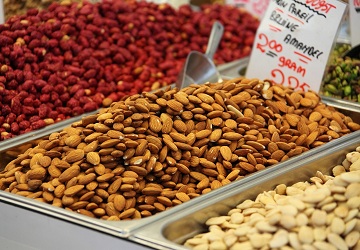How to Reduce Inflammation in Your Body Through Diet and Lifestyle
Inflammation has been linked to a variety of health complications, and certain foods are thought to make the condition worse. You can reduce inflammation by adopting a vegan lifestyle. The aim is to reduce consumption of processed foods, red meat and alcohol and increase consumption of plant-based foods.
Excessive inflammation can put vital organs like the heart and brain at risk and can lead to the development of some serious health problems. While moderate inflammation can promote recovery, persistent inflammation can trigger flare-ups.
Reduce Inflammation in the Body Through Diet
A diet focused on reducing inflammation emphasizes eating fresh fruits and vegetables. Various plant foods contain a variety of antioxidants. Some food types consist of ingredients that can activate or exacerbate inflammation, and some food products can trigger the development of free radicals. Some foods fall into this category, such as frying in repeatedly heated oil.
The main components of an anti-inflammatory diet are antioxidants, along with those that promote free radical production. Fiber can lower the levels of inflammatory proteins in the body. The omega-3 fatty acids in oily fish do the same.
Main Symptoms of Inflammation
Inflammation is difficult to diagnose because it is normal for people to have inflammation for a long time, and it is analyzed when the severity reaches the limit where symptoms can be seen. Still, certain physical signs can serve as clues.
For example, if you notice that your pants are tight at the waist, you may feel a larger belly. Some signs of inflammation or allergy that may occur include redness, skin irritation, and swelling or swelling of the extremities.
Also, if you notice inflammation, swelling, skin irritation, or fluid buildup in your hands and feet, this could indicate a problem with your skin or circulation.
What Role Does Diet Play in Controlling Inflammation?
"Anti-inflammatory diet" is not a strict nutritional program, but a comprehensive approach to nutritional intake. Due to individual triggers of inflammation, anti-inflammatory diets cannot be applied universally. Targeted eating habits can suppress the body's inflammatory response.
Check the Use of Processed Foods

To reduce inflammation, it is recommended to avoid foods that cause inflammation. These are usually processed or packaged foods with a long list of ingredients.
Eat More Whole Foods
Self-sufficient ingredients like cucumbers, apples, or oranges are the only ingredients in a whole food diet. Once you remove processed products from your diet, you're left with whole foods. When a particular food comes from a natural source, it meets the criteria for being classified as a whole food.
It is important to check component inventory regularly. Food products can consist entirely of whole foods, although the ingredients vary.
Stick to a Specific Eating Plan
While several diet types are known, not all diets help control and treat inflammation. If you're looking for a meal plan like this, sticking to the DASH diet or the Mediterranean diet is a must. Here's what you should know:
If you're battling excess weight gain, reduced inflammation, and elevated blood pressure, the DASH diet is right for you. It offers a dairy-rich approach with less fish or extra-virgin olive oil consumption. The main goal of the DASH dietary approach is to encourage the consumption of whole and natural foods while limiting intake of protein foods, processed products, and sweets.
The concept of the Mediterranean diet is well known in the nutrition world. The inhabitants of the Mediterranean have long practiced it. It promotes the absorption of nutrients that have anti-inflammatory properties. This includes whole foods and omega-3 fatty acids. Each diet offers the greatest benefits for maintaining heart health.
Get Some Nuts

The combination of fiber, antioxidants, and fatty acids (like omega-3 and omega-6) in nuts contribute to their anti-inflammatory properties. People who regularly ate at least five 1-ounce servings of nuts had lower biomarkers of inflammation compared with those whose diets did not include nuts.
How Long Will it Take to See Effective Results?
Both the degree of intolerance you have and the severity of the inflammation will affect the results. Introducing an anti-inflammatory diet is not a quick fix. If you have a strong negative reaction to a certain food, you may notice noticeable changes within two to three weeks of removing that food from your diet.
Quick and drastic changes don't guarantee lasting success; therefore, give yourself three to six months to change your diet.
Diploma
As a protective mechanism in your body, inflammation acts as a defense mechanism. An example is an inflamed wound, which indicates that the body's inflammatory response has kicked in and is working to repair the damage.
If inflammation persists for a long time due to poor diet and smoking habits, it can lead to various health complications. That's why we're giving you an in-depth look at how you can reduce inflammation by eating a healthy diet for the long term.


